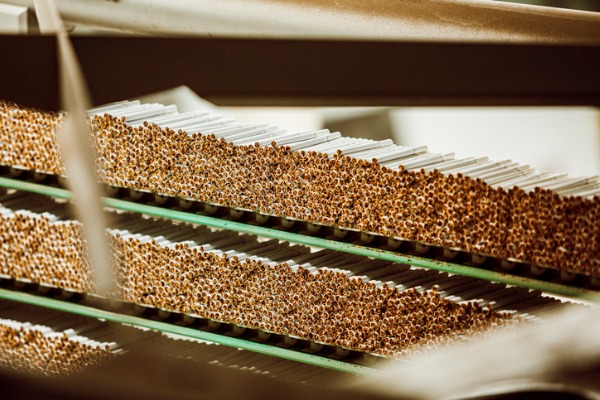Imperial Brands maintains guidance as Sunak attacks sector
The tobacco sector faces serious headwinds which is reflected in share prices, but a yield in excess of 9% remains attractive. Our head of markets looks at this latest update and also rounds up action on global exchanges.
5th October 2023 08:17
by Richard Hunter from interactive investor

Imperial Brands (LSE:IMB) continues to grind out growth, but the scale of the challenges facing the sector shows little sign of abating.
The latest volley from UK Prime Minister Rishi Sunak on plans to incrementally ban tobacco sales, especially to youngsters, saw share price declines in the sector yesterday. This adds to the burden of regulatory censure which has plagued the sector over recent years, a general decline in traditional tobacco products sales as health issues come to the fore and a reluctance among some investors to invest in tobacco companies at all on ethical grounds.
- Learn more: SIPP Portfolio Ideas | How SIPPs Work | Transfer a SIPP
Even so, the extremely cash generative nature of the business is still being underpinned by growth in Imperial’s aggregate market share in its five priority markets, strong pricing which has offset volume declines and led to an increase in adjusted operating profit, and net revenue growth in the strategic shift towards Next Generation Products (NGPs), such as vapes, heated tobacco and oral nicotine.
Previous guidance for the full year remains intact, with the weakness of sterling providing a small additional tailwind to revenues.
The announcement of a further share buyback programme of up to £1.1 billion next year is a calculated use of capital. It is in addition to this year’s programme of £1 billion, and comes alongside a dividend yield of 9%, which is punchy by any standards and sufficient to attract the attention of income seeking investors. This also reflects the group’s ability to choose between shareholder returns, investment in the business, paying down debt or any combination of these.
However, the clouds over the sector remain despite the financial largesse, and competitor British American Tobacco (LSE:BATS) has suffered a share price decline of 24% over the last year. For its part, Imperial has lost 16%, which compares to a gain of 5.1% for the wider FTSE100, although the market consensus of the shares as a buy suggests a dogged resistance to the current challenges, based on prospects for a burgeoning NGP market and ample shareholder return rewards in the meantime.
Market snapshot
It remains to be seen whether the bounce in US shares was simply a relief rally after a difficult few days of trading, or whether the acceptance of higher interest rates for longer has at last been begrudgingly accepted by investors.
The latest ADP private payrolls report came in lighter than expected, while a sharp drop in oil prices should ease some inflationary pressure. However, while the US economy may be showing some signs of weakening at the margins after a prolonged spell of interest rate rises, there is currently little to suggest that the Federal Reserve is even contemplating monetary easing at this point.
The vitally important non-farm payrolls report tomorrow will provide further clues, and it is expected that 170,000 jobs will have been added in September, as compared to the August number of 187,000.
In the meantime, the recent market volatility, which could well be resumed depending on the outcome of the NFP report, has continued to erode some of the strong gains seen earlier in the year. Indeed, the Dow Jones is now trading flat in the year to date, with the S&P500 and Nasdaq indices having added 11% and 26% respectively.
- Why bond yields have risen so fast and what investors can do
- Benstead on Bonds: why UK investors are getting a great deal on bonds
- Autumn Statement 2023 preview: what might Jeremy Hunt have in store?
The sense of relief also permeated Asian markets overnight and followed through to the UK at the open. However, despite the bounce in opening exchanges, the FTSE100 remains a few points shy of breaking even for the year. The switch from high growth stocks elsewhere globally has tended to be towards higher yielding bonds, as opposed to the dependable and somewhat defensive nature of the UK’s premier index.
Coupled with a seemingly intransigent view by international investors that the UK is lacking true appeal at present, any such pop in its share prices has of late tended to be of a temporary nature. Indeed, the more domestically focused FTSE250 now finds itself down by 7% in the year to date on increasing concerns for the immediate economic outlook.
These articles are provided for information purposes only. Occasionally, an opinion about whether to buy or sell a specific investment may be provided by third parties. The content is not intended to be a personal recommendation to buy or sell any financial instrument or product, or to adopt any investment strategy as it is not provided based on an assessment of your investing knowledge and experience, your financial situation or your investment objectives. The value of your investments, and the income derived from them, may go down as well as up. You may not get back all the money that you invest. The investments referred to in this article may not be suitable for all investors, and if in doubt, an investor should seek advice from a qualified investment adviser.
Full performance can be found on the company or index summary page on the interactive investor website. Simply click on the company's or index name highlighted in the article.